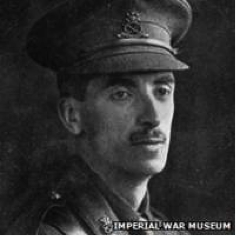 Captain Charles John Beech Masefield, MC was one of the many young men of England who went to war in France and never came back. From the privileged surroundings of his Staffordshire home to the horrors of the front line proved to be a life-changing experience for the cousin of a future Poet Laureate, John Masefield. An England that had, for so many generations, nurtured a rigid class system was changed forever but at a terrible cost.
Captain Charles John Beech Masefield, MC was one of the many young men of England who went to war in France and never came back. From the privileged surroundings of his Staffordshire home to the horrors of the front line proved to be a life-changing experience for the cousin of a future Poet Laureate, John Masefield. An England that had, for so many generations, nurtured a rigid class system was changed forever but at a terrible cost.
He was born on the 15th April 1882 in the Staffordshire town of Cheadle. His father was an articled solicitor with a local company and the family lived in great comfort, their country house a part of the large Abbots Haye Estate. This idyllic setting provided the young Charles with great inspiration for his poetry but all that was to change as the early years of the 20th century dragged the whole of Europe towards a terrible conflict. His upbringing was strictly Christian and Charles was one of five children.
He went to boarding school at Repton and it was hoped that he would go on to study the law so that he could join his father’s firm. He studied the classics and was a keen member of the school”s debating society. At the age of 16 he won a prize in divinity and followed this, in his final year at school, with one for English verse. As expected, on leaving school he became an articled clerk in a curiously old-fashioned law firm that included his grandfather who refused to accept modern accoutrements like the telephone!
By 1908, Charles had published his first novel and, during the next few years, was enjoying the relative ease and tranquillity of a small town where he had married his wife Muriel and had also published a visitors’ guide to Staffordshire. His interests included archaeology and he became involved in schemes to provide education for the coal miners in the area. He raised money for his local parish church but then, as the dark clouds of war covered the nation, his priorities changed.
He was one of many who stated at the outset that it was a just war. He said: “Right is right and we shall prevail” and “If this war cannot cleanse us as a nation what will?” As was common at that time, he joined his nearest regiment – the 3rd and 5th Battalion of the North Staffords in his case, in 1915. He was sent to France but had to return to his home because a series of deaths in his family meant that he was the only living member of the original law firm that he had left behind.
Having attended to family and office matters he returned to duty, but this time to Brocton Camp which was not far from his Staffordshire home. Since joining the Army, Masefield had been determined to document his experiences in both letters home to his wife and in poetry. One of his verses poignantly tells of the hopeless situation that he and his brother soldiers found themselves in. It might have been a glorious concept at the start but the result would be death for so many of these young men, many of whom, like him, had come from comfortable, middle class homes:

Another, titled Brave Singer’s Song, must have been written as he saw his comrades falling about him, as the terrible war progressed with no end in sight:

When Masefield returned to France in May 1917 he earned the prestigious Military Cross for gallantry following a raid against the enemy in Cite St Laurent. But, not long after this, his regiment mounted an attack on the large city of Lens. Masefield was killed in this action and buried with honours in a small cemetery at le Forest. It was later said that he:

Charles John Beech Masefield died in Lens, France on the 2nd July 1917, aged 35.

